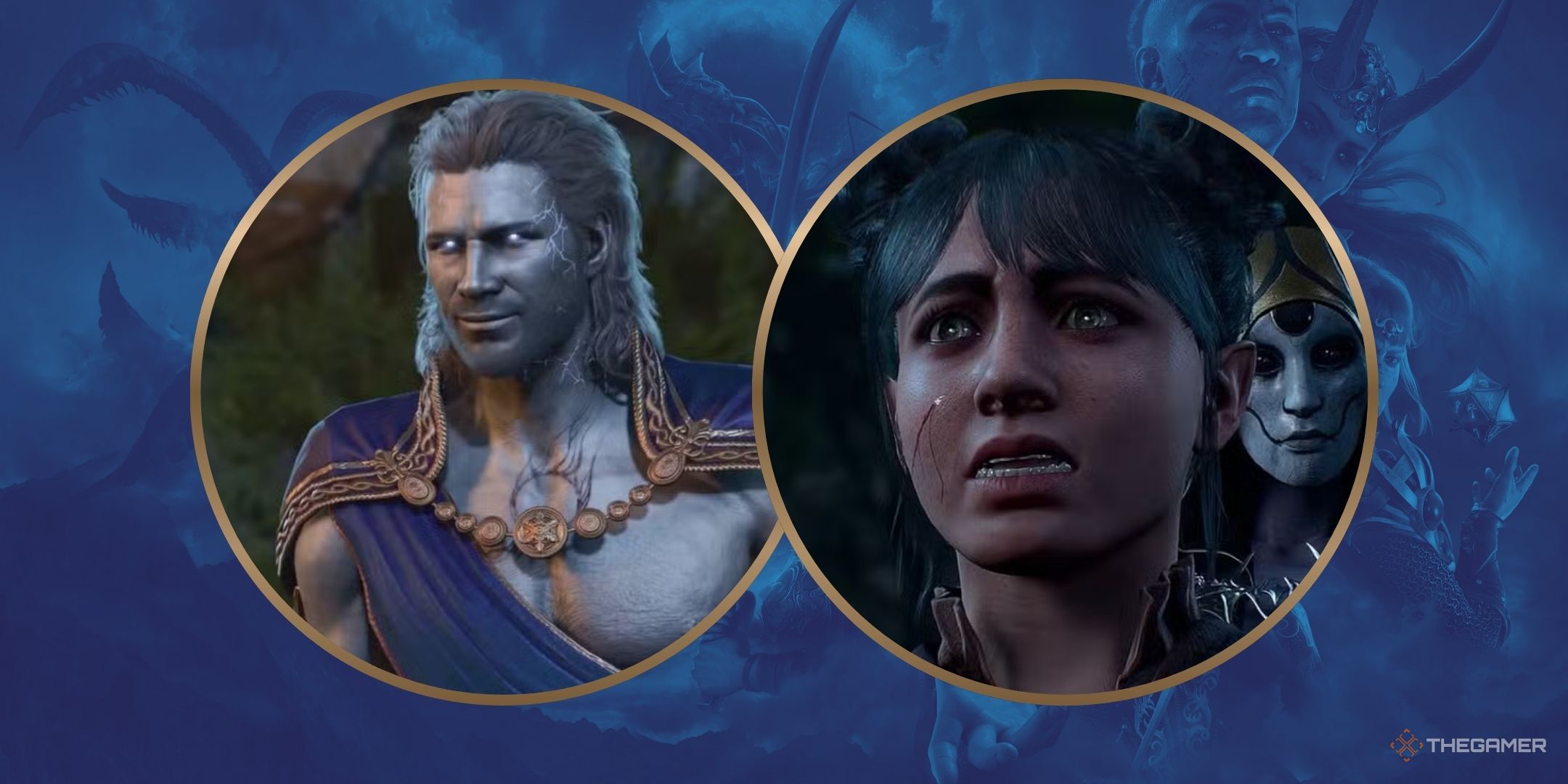The Real-World Moral Of Every Baldur’s Gate 3 Companion’s Story

If you make some bad decisions in Baldur's Gate 3, you can accidentally lose some of your companions. If you manage to keep them around, though, you get to play through their exciting personal quests.
During these, you typically learn more about your friends and help them with some big moments in their lives. Generally, there is a lot of depth to these quests, and you learn plenty of real-life lessons from them. In fact, there is a moral to each story. This is all of them.
Minthara, Halsin, and Minsc don't have companion quests, so they've not been included.
The Wizard Of Waterdeep (Gale)
The Risk Of Overambition
Gale's story revolves around his fallout with Mystra, the Goddess of Magic. She breaks up with him because he attempted to mess with magic that is beyond mere mortals, despite her warnings. Not only did he lose her, but the whole thing led to him getting an orb in his chest that may explode. So, it was a bad decision by the wizard. He can make a similar sort of decision during his personal quest, as there is a chance for him to become a god. If he does, he becomes the most arrogant and worst version of himself.
The moral of the story is that there are risks to overambition. It's fine to have ambitions and want to be successful, but there is a limit to these things. Gale lost Mystra by messing with more powerful magic than he's capable of, while he can also disappoint his best friend, Tara, in an effort to become a god.
Our Fiery Friend (Karlach)
The Importance Of Accepting Your Own Mortality
Everyone dies. It doesn’t matter who you are or what your situation is; you will one day have to face your own mortality. Unfortunately for Karlach, she has to do so earlier than she would’ve liked. The Infernal Engine that an archdemon put in her chest is going to kill her, and she knows it.
That said, she doesn’t allow that knowledge to ruin the time she has left. Yes, she breaks down and gets angry about her situation sometimes. Mostly, though, she spends her remaining days having fun and trying to save the world. Therefore, she is gracefully facing her own mortality. This should be a lesson to everyone.
The Blade Of Frontiers (Wyll)
There Are Different Types Of Heroes
Wyll is a hero before the game even begins, but his story still explores the nature of being one. Prior to the events of the game, he establishes himself as a self-sacrificing hero who sold his soul to save Baldur's Gate. As a result, much of his companion quest is about doing the bidding of a cambion named Mizora.
The quest is also linked to the one revolving around the Duke, aka Wyll's father. All of it leads to a big decision for Wyll: should he be a monster-slaying hero or a political hero? In both roles, he would intend to do what's right, but it's up to him which method he chooses. This shows that there are multiple ways to help people. They don't have to be as grand as Wyll's options, but everyone can be a hero to somebody.
The Pale Elf (Astarion)
Everyone Deserves Autonomy
Throughout much of Astarion’s life, he has been controlled by Cazador. As Cazador's spawn, he is forced to do everything he says. And the villain has made him do some horrible things. However, the tadpole in Astarion’s head stops him from being controlled. So, he finally has an element of freedom and the ability to do what he wants.
Of course, what he wants is revenge. Yet, he also enjoys the freedom and appreciates that he’s no longer a tool for anyone. This autonomy enables him to become a better and more noble version of himself, instead of the killer he was forced to be. Everyone needs this same level of freedom and autonomy.
The High Harper (Jaheira)
Good Frienships Can Overcome A Lot
One of the reasons why Jaheira's companion quest isn't among the best ones is that there isn't much depth to it. It isn't a deep, personal story that truly explores who Jaheira is. Instead, it's just about the Harper searching for her old friend Minsc.
So, if there is anything to take away from the quest, good friendships can overcome the most difficult of situations. After all, the last time Jaheira saw Minsc, she deserted him for the greater good, but he still forgives her and remains loyal.
Daughter Of Darkness (Shadowheart)
Blind Faith Can Be Dangerous
Shadowheart’s tale is all about her belief in the Goddess of Shar. From the start of the game, she fully believes in the goddess and faithfully follows her teachings. She has so much faith in Shar that she willingly accepts the punishments and memory wipes that the goddess imposes on her. However, during the game, you figure out that Shar actually kidnapped Shadowheart as a child and indoctrinated her. Her ‘faith’ is built on the back of that.
Everyone’s beliefs should be based on what they actually believe, instead of what they’ve been told to believe. And if you have been brought up on a specific faith, it’s okay to question some aspects of it, instead of just unquestioningly believing in it all.
The Githyanki Warrior (Lae'zel)
Be Careful Who You're Loyal To
Lae'zel is a proud Githyanki warrior. So, at the start of the game, she proudly worships their leader, Vlaakith. And throughout the adventure, she rejects anything that suggests that the Queen isn't the perfect ruler. She is loyal to a fault and spends much of her time trying to impress her Queen with hopes of being her chosen, which would allow her to 'ascend.'
Yet, you later learn that Vlaakith isn't as special as she claims to be. Orpheus is actually the one most qualified to be their leader since he can suppress Illithids. Also, allowing someone to 'ascend' just means Vlaakith steals their power. The so-called ruler is just a liar. It's hard news for Lae'zel to learn since she's spent much of her life as her loyal follower. This is why you need to make sure that you're loyal to the right people.













